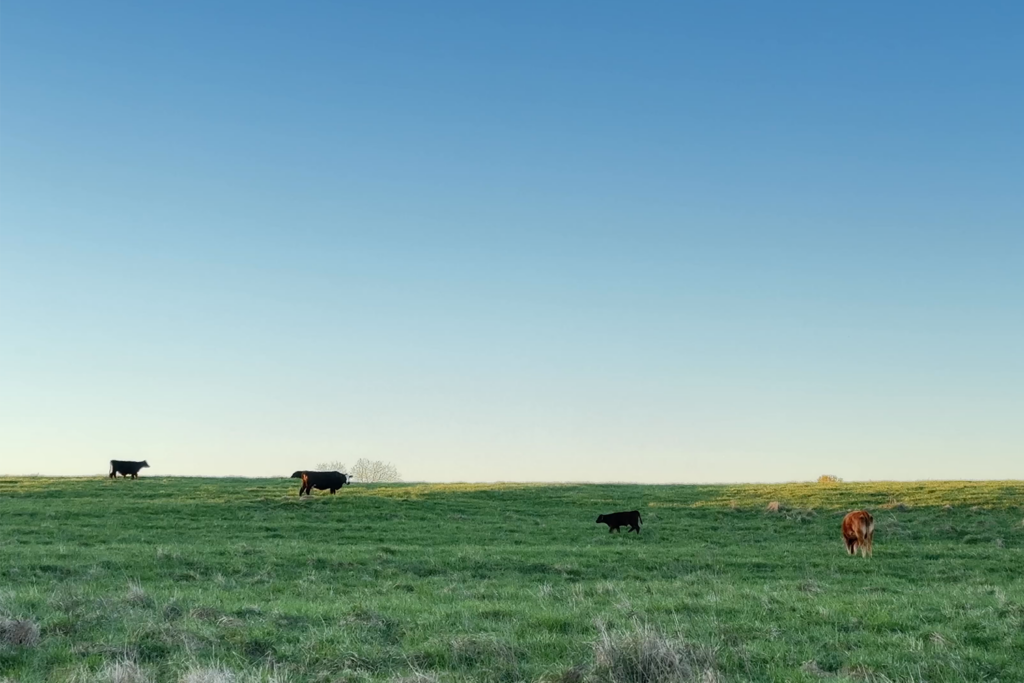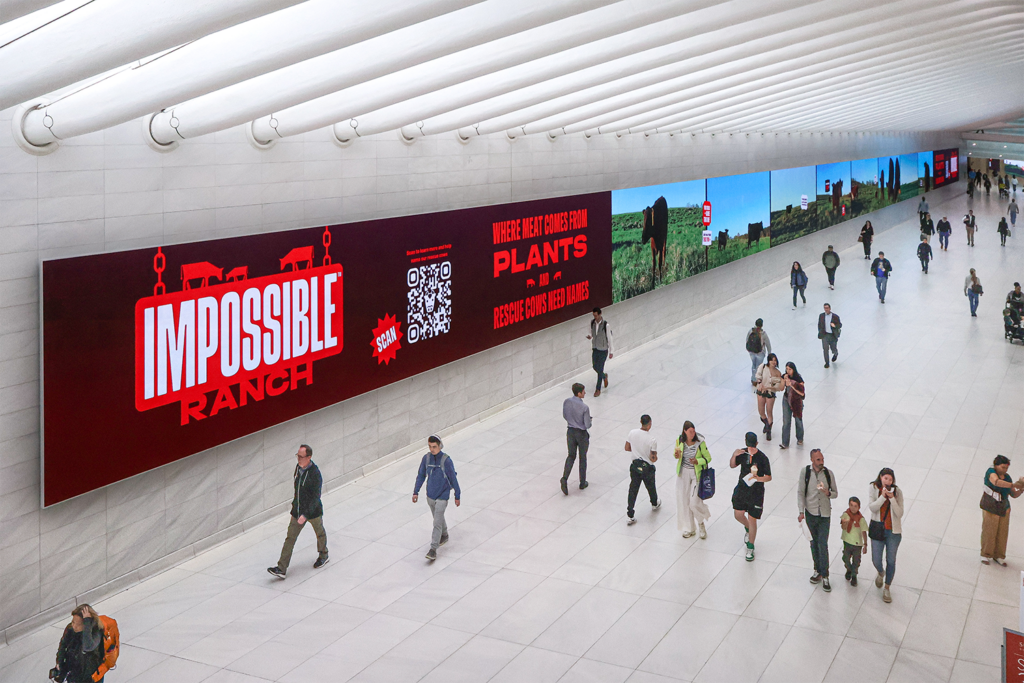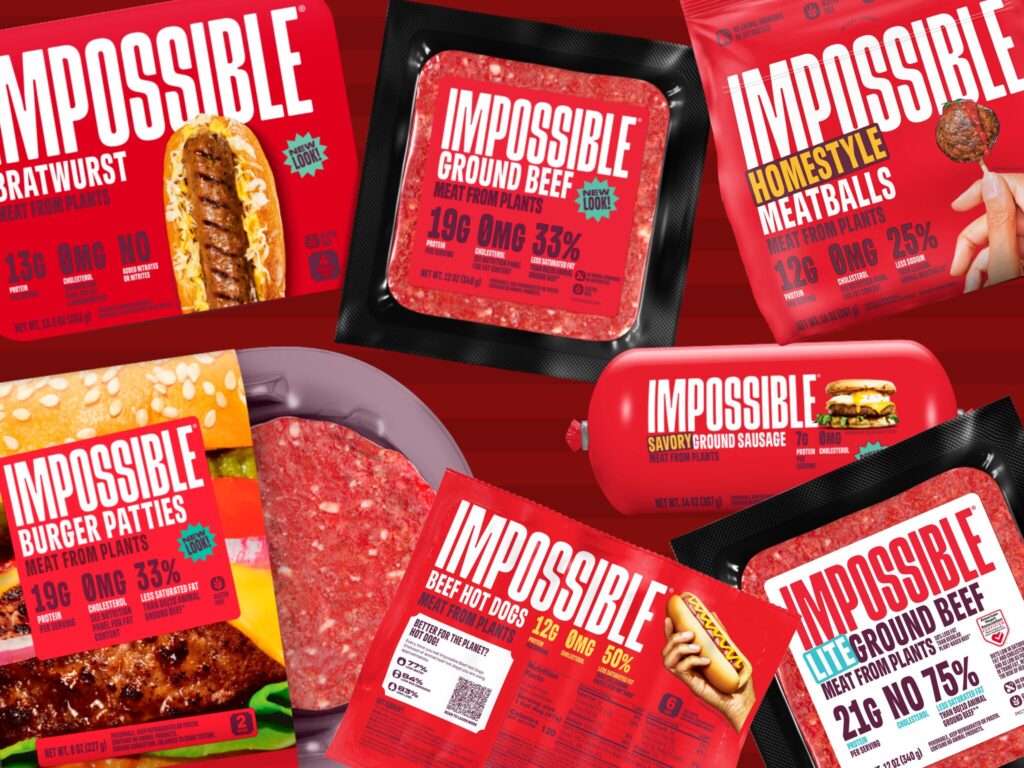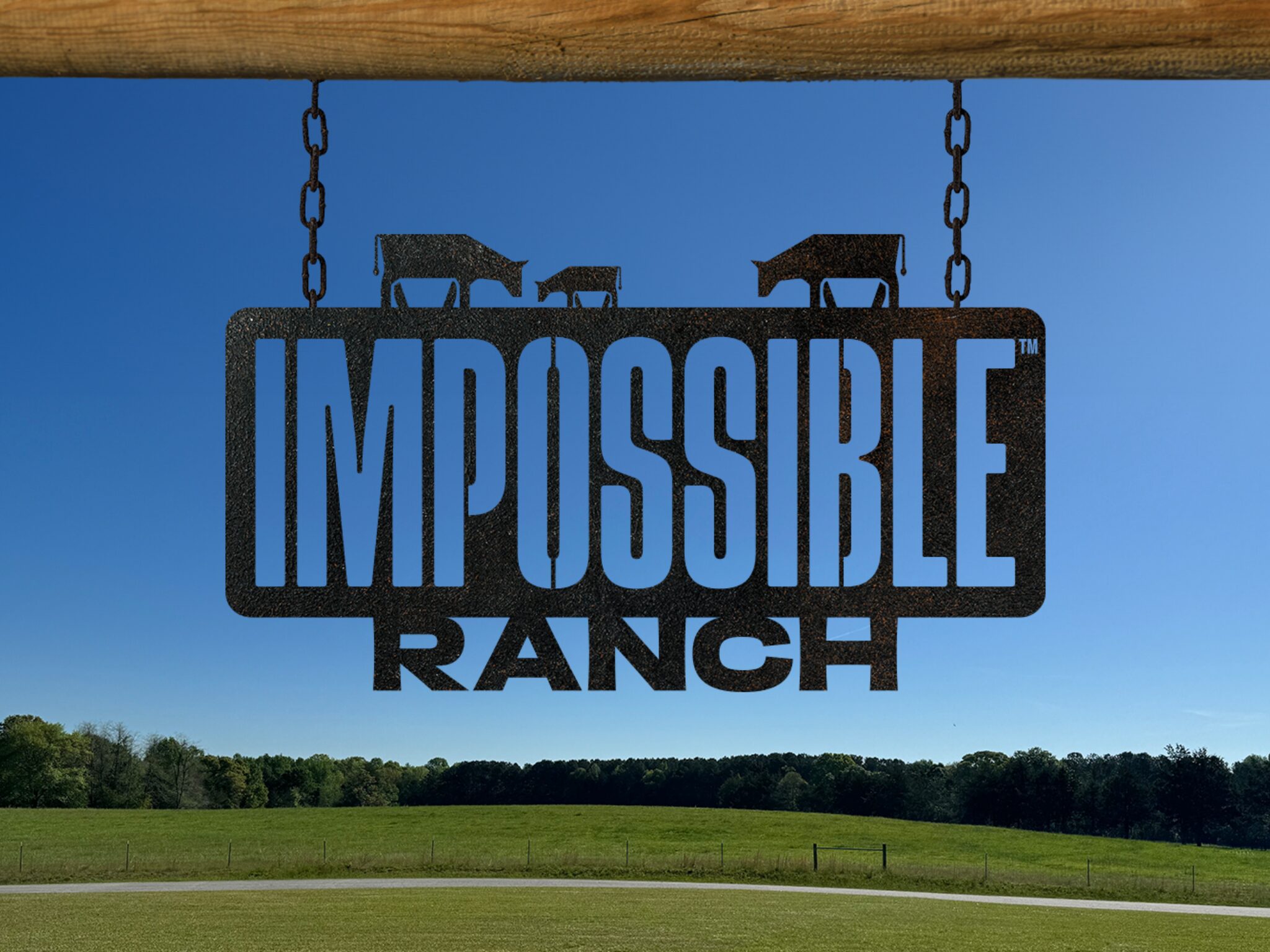Impossible Ranch: Alt-Meat Giant to Transition Cattle Farm Into Crop Production for Plant-Based Meat
5 Mins Read
Impossible Foods has invested in transitioning a farm from cattle production for meat to crop cultivation for plant-based meat, all while rescuing the cows in the process.
You’d be forgiven for immediately thinking of a new vegan buttermilk dressing when you hear the words ‘Impossible Ranch’. But that’s not what plant-based pioneer Impossible Foods is doing in South Carolina, where a now-former cattle farm will sport crops like soybeans, sunflowers and coconut trees.
These will support the manufacturing of Impossible Foods’ vegan beef, chicken and pork products, transforming the output of the farm from animal-derived meat to plant-based instead. In addition, the company is rescuing the cows on the property, and documenting the long-term transition project on its social media to allow consumers to follow along.
“Impossible Ranch is a living and breathing educational resource where our commitments to giving back to the planet and supporting animal welfare are front-and-centre, along with the plants representing key ingredients in our products,” said chief marketing and creative officer Leslie Sims. “We want to bring consumers along on this journey and help them understand how choosing meat from plants can be a better choice.”
A safe haven for cattle

The 70-acre Impossible Ranch is located in the foothills of the Blue Ridge Mountains. Having operated as a cattle ranch for decades, the transition to crop farming sees Impossible Foods work in partnership with the family that has tended the land for so long. This, it says, helps it “honour the heritage” while highlighting a “renewed focus on animal welfare”.
In the US, 70% of cows and nearly all chickens and pigs are raised on factory farms – that totals over nine billion animals. But foods derived from industrial production methods come with many health risks. For example, in the US, water pollution from factory farms threatens or impairs over 14,000 miles of rivers and streams and more than 90,000 acres of lakes and ponds. According to the EPA, nitrogen and phosphorous waste from factory farms has been directly associated with aquatic deaths. And, in many parts of the world, animals have been culled for years to prevent the spread of zoonotic diseases.
Moreover, 575 billion lbs of animal waste are generated by a mere 5% of American concentrated animal feeding operations annually. This contains elements that “seriously degrade” rivers and contribute to antibiotic resistance among humans, leading to the American Public Health Association calling for a ban on new CAFOs.
Impossible Foods says its ranch is a “safe haven” for the property’s resident cattle, and is inviting customers to suggest names for the animals – which comprise six cows, two steers and a calf – with updates from the farm being shared on its social channels.
Apart from the health and water pollution aspects, there’s also an environmental benefit to this. Meat is twice as polluting as plant-based foods, and makes up 60% of all emissions from the food system. In fact, one peer-reviewed study last year (which involved inputs from Impossible Foods) revealed that swapping half of our pork, chicken, beef and milk production with plant-based analogues could halt deforestation and reduce agriculture and land use emissions by 31%.
Impossible Foods is ramping up consumer education efforts

As part of the launch, which coincides with Earth Day, Impossible Foods is taking over the Oculus Transportation Hub in Manhattan to exhibit the ranch to New York City commuters. The company argues this will help people envision a future where plant-based meat and cattle can coexist peacefully, at a time when the source of people’s food and what it does to the planet is garnering increased attention.
Sims alluded to this, noting: “As a leader of the plant-based category, we saw both a need and an opportunity to demystify meat from plants in a way that feels more approachable for consumers.”
This is the latest step in Impossible Foods’ efforts to educate and engage with consumers. Only last month, the company unveiled a brand refresh with new red packaging (a colour associated with superior taste for plant-based meat). The new look puts a greater spotlight on taste descriptors, visuals, and specific health credentials (like saturated fat and sodium content).
The idea was to lean into the meaty flavour and texture of its products, while pointing to their nutritional superiority over conventional counterparts. “We realised we can get even more consumers in the door by leading with our incredible taste and nutritional quality – then, we can seal the deal with the environmental benefits,” a company spokesperson told Green Queen last month. “With every converted consumer, we’re able to maximise our positive impact on the planet.”

This followed the launch of the Impossible Beef Lite last year, which carries the American Heart Association’s Heart-Check certification. It is one of the only meat analogues to be certified as heart-healthy, with a few products from Beyond Meat also appearing on that list.
“With every move we make, we want to set the tone that we’re an inclusive brand. We don’t want people to feel judged for loving meat, and we need to show them they don’t have to change their lifestyle in order to help the planet or their health,” the spokesperson said.
The farm transition project will doubtless push its mission further. Other similar initiatives include The Trasfarmation Project, Refarm’d, and the Dairy Farm Transition programme by Miyoko’s Creamery. Meanwhile, in the Netherlands, RESPECTfarms is working on a similar vision for cultivated meat.



